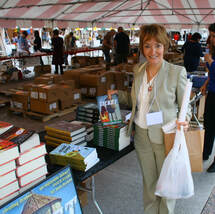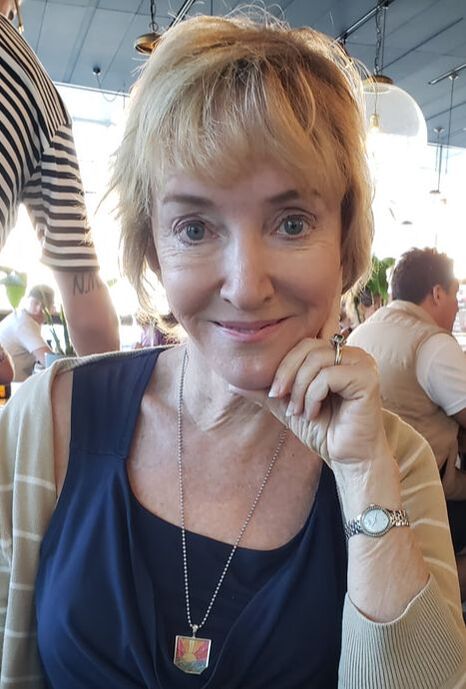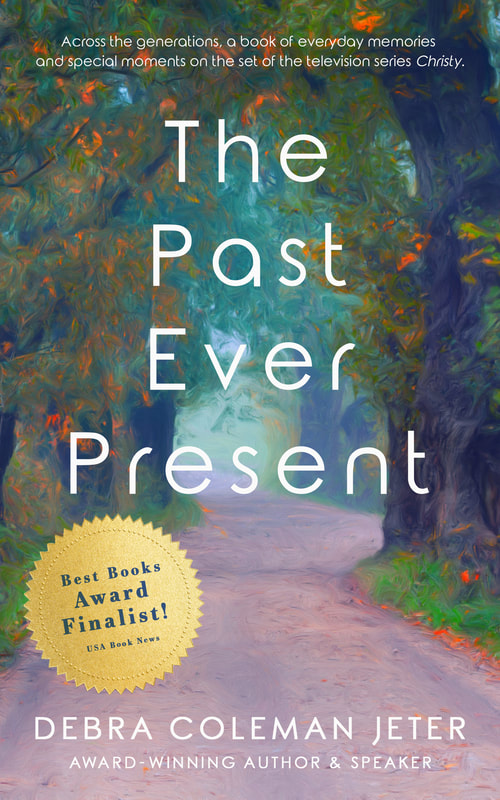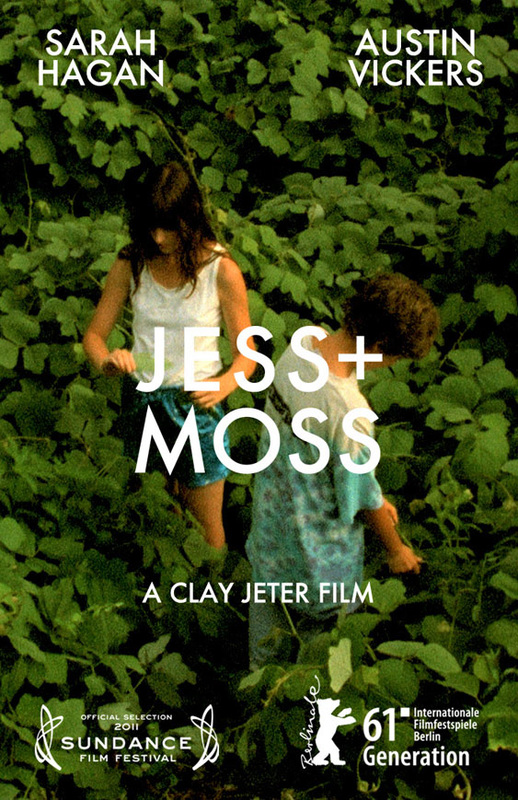|
Have you ever wondered why Jesus spoke so often in parables? It occurred to me recently that it’s a lot like the advice writers hear about how important it is to show rather than tell. Long before computers and copiers, or even printing presses, people told stories to draw their audience in. Jesus was a master at this. In most of his parables, we identify with a character, whether it’s the prodigal son or his elder brother (Luke 15: 11-32), the bridesmaids who run out of oil or the ones who don’t (Matthew 25: 1-13). In my family, we would often discuss a sermon after leaving the church building. Sometimes your mind goes blank for a few minutes and you think, “What was that about today?” Often the thing that brings it back is a story or a joke the preacher shared to make a point. The stories tend to stick with us longer than the rest, and they bring home the message behind the story. Another parallel that I’ve discovered between God’s plan and pointers for helping writers has to do with secrets being kept until the proper time. The best writers are so good at knowing how long to withhold a piece of information until just the right moment to maximize its impact. There are times in our lives when we cannot help questioning why God allows the struggles, the pain, the suffering we see around us and sometimes experience ourselves. Occasionally we hear a story from someone who found Christ only after hitting rock bottom, and we think, “Aha! I see why God did that.” But so often we simply cannot see the reason behind the things that happen in this world. If we compare our lives to a novel, the comparison falls flat. For one thing, as human beings, we are far more complex and full of contradictions than any of the characters in our favorite works of fiction. For another, we do not see the whole picture; the last chapters are not written in this lifetime. The author who created us is infinitely wiser, infinitely more compassionate but also infinitely more mysterious than our favorite novelist. In Matthew 13: 10-11, the disciples asked Jesus pointblank, “Why do you speak to the people in parables?” Jesus told them, “Because the knowledge of the secrets of the kingdom of heaven has been given to you, but not to them.” As a reader, I love the books that make me think, not just while I’m reading them but long after I finish them. I’m okay with a few things left for me to interpret as I choose, rather than having every single detail spelled out to remove all doubt. I know this style isn’t for everyone, but I love it when I can debate a character’s good and bad qualities with another reader, even if (or especially if) the other reader sees things I missed and vice versa. But in my life and those of my loved ones, I long for perfect clarity. I want to understand completely; and when I cannot, my faith sometimes falters. We read in Matthew 13: 13-14, that Jesus’ use of parables fulfilled Old Testament prophecy: “Though seeing, they do not see; though hearing, they do not hear or understand.” I can’t claim to understand God’s plan fully, but I take comfort in what is probably my favorite scripture, 1st Corinthians 13: 12-13: “For now we see only a reflection as in a mirror; then we shall see face to face. Now I know in part; then I shall know fully, even as I am fully known.” “And now these three remain: faith, hope and love. But the greatest of these is love.”
2 Comments
We all know the Golden Rule (Matthew 7: 12). But sometimes I wonder if we interpret it too literally. I’ve become convinced over the years that what Christ intended was for us to do unto others as they would have us to do. Most of the time, this is equivalent to doing to others as we would have them do unto us. But occasionally it’s different. For example, there are some of us who love surprises and others who do not. Just because we are among those who love surprises doesn’t mean we should plan a surprise party for a spouse who has told us sincerely and repeatedly that he doesn’t want one, or that he hates having that sort of fuss. Now you may know your spouse well enough to know that he would love such a party deep down despite his protests. But I’m pretty sure mine would not (he says there should no “pretty” about it). As another example, my husband thinks the “heel” of the bread is an inferior slice, and so he avoids it if making me a sandwich. In truth I prefer that slice, but I know he’s doing me an intended kindness by avoiding it. When my husband is ill, he likes to go to bed and be left alone. I like to have someone look after me when I’m sick, but that was harder initially for him to understand since he would not. To some extent, we become set in our ways as we grow older. But, with the Lord’s help and a lot of will and work, we can change and improve in our other-centeredness as we age. If you prefer to have lots of friends about you to commemorate important occasions while your loved one prefers only the immediate family, you may want to refrain from inviting “extras” when it’s his or her celebration. If you prefer to receive gift cards for Christmas but your sister prefers gaily wrapped packages, you probably shouldn’t give her a gift card. If you prefer board games but your husband calls them “boring” games as mine does, it may not be wise to assume he’s really itching for a game of scrabble. If no one but you can make your coffee or tea quite right, keep in mind that others might enjoy being waited on occasionally (even if there’s slightly too much or too little cream). A lot of these examples are pretty trivial, but trying to become familiar with the preferences of your loved ones can help make you a better friend and family member. After all, isn’t that what you would have them do unto you? In Anna Karenina, Tolstoy wrote, “Happy families are all alike; every unhappy family is unhappy in its own way.” As a reader, I sometimes wonder why I can’t see more of the characters I’ve grown to love after the end of the book when the conflict has been more or less resolved. But I also know that conflict is what keeps me turning the pages. I grew up in a family that wasn’t all smiles and compliments. We had our share of laughter but also our share of tears. If my mom found fault with me, my sister, or my father, I know now that she did so out of a desire to make us the best people we could be. But at the time, each of us responded in our own way, whether it was tears and hurt feelings (my sister), anger (my dad), or rebellion and “acting out” (me). Perhaps every family thinks theirs is unique in some ways. I know I do. Though far less unusual or removed from the norm than Jeannette Walls (Glass Castle), I see boundless opportunities for writing inspired by my loving crew. Yes, mistakes were made (I’ve certainly made my share over the years), but love was bountiful. Figuring out what makes people tick is generally what my stories are about. As I look back, back, back—beyond my parents (and their generation), to their parents (and theirs), I see certain patterns. In my mom’s family, I see strong-willed women who made their voices and their opinions heard, who often ruled their households or at least managed to mold them to their liking. Most of the men went along, found jobs that took them away from the house for stretches of time, or created man-caves in the basement for themselves. In my father’s family, the men were the strong ones. The women were gentler, more compliant, relinquishing their own desires in favor of those of their husbands. My paternal grandparents, for instance, grew up in a farm community in western Kentucky. When times got tough financially, a lot of their contemporaries went to Detroit to look for work in the factories. My grandparents were no exception. My paternal grandfather was smart and hard-working, and he moved up the ladder quickly. My grandmother loved the social atmosphere of being surrounded by lots of talkative, friendly women her own age on a daily basis. She would have loved to stay in Detroit permanently, but my grandfather wanted nothing more than to return to the life he loved on the farm as soon as they had saved enough money. So return they did, and my grandmother devoted herself without complaint to the life of a farmer’s wife: cooking, cleaning, canning, freezing, gardening, sewing. A good life but a solitary one in many respects. When my parents came together—my dad from a background where men carved out the lives they wanted and the women went along; my mom from the exact opposite—is it any wonder that the wills often clashed? As a writer, I find an abundance of material in their stories. In the first book I published (nonfiction, Pshaw, It’s Me Grandson) I delved into my father’s childhood. Readers told me they wanted more, so that is still on my agenda. But I’m currently working on the stories from my mother’s family. One of her cousins tells me he has traced our roots right back to Catherine the Great of Russia, who was German (my maternal grandmother was a Shultz). This resonates with me because I’ve always sensed a certain grandness, almost a feeling of royal birth or entitlement, in this side of the family despite their humble roots in the tiny farm community of Bell City, Kentucky. Catherine was a strong-willed woman married to a weak man, and she accomplished amazing things, leading Russia to unprecedented heights in art and literature, as well as economically. I see hints of this in my grandmother and her four sisters, though none has risen so high in ways visible to the world. Yet, within their families and their communities, the stories of these strong women are just as compelling, and I look forward to putting them on paper. Another theme—or perhaps it is really a variant of the same one—is how each of us is largely a product of what came before us. We often see in ourselves things we don’t like that are reflections of the very things we willed not to imitate. But there are reflections also of the good things. My maternal grandfather had enormous capacity for love. Although he died (pancreatic cancer) when I was quite young, I have vivid memories of the love he lavished on me. My dad married into this family when he was only eighteen, and I see in him the same devotion to family. I think he learned this, at least in part, from his father-in-law. This tremendous capacity for love and devotion to others is not just in our genes—it’s also learned from our environment. There are lessons about devotion I’ve learned (and hope to incorporate into my life) from my husband’s family. His brother Terry (who passed away recently at the age of 59) was damaged at birth by forceps being applied by an inept country doctor. As a result of the very difficult birth, he had a severe case of cerebral palsy. This means his brain was damaged in a way that made it impossible for him to control his muscles (he couldn’t feed himself, talk or do anything physically to take care himself), but his mind was untouched (my husband always claimed he was probably the smartest one in the family). Whereas some families might have sent him to an institution, my father-in-law cherished him his entire life. When he could no longer lift Terry to change his diapers (my father-in-law lived to be 94), he reluctantly put him in a nursing home. But he visited him three times each day (and then later twice) to feed Terry his meals, sit with him, and make sure the staff were treating his beloved son with respect and kindness. Some of my earliest memories are of the little country church I attended with my parents and grandparents. My grandmother was one of nine children in a little farm community in western Kentucky called Bell City. When she was growing up, there was no church nearby so they went to tent revival meetings whenever they came to town. Later, her brother and a friend who ran an orphanage in Bell City built the church I attended as a small child. I remember going on Easter egg hunts with the kids from the orphan’s home and being grateful I had parents and grandparents who loved me. My mother struggled with bipolar disease when she was younger, and the disease affected my sister, my dad and me. In my novel, The Ticket, one of the characters has this condition, and the repercussions are devastating. I’m so thankful that, with prayer and treatment, my mother’s condition has been controlled for many years, and that nothing so extreme has befallen us. Although she can be difficult at times—and has often tried my dad’s patience almost to the breaking point—she is also the one in our family who is the quickest to laugh and to forgive; and I’ve never doubted how much she loves us. |
Archives
June 2024
Categories |







 RSS Feed
RSS Feed